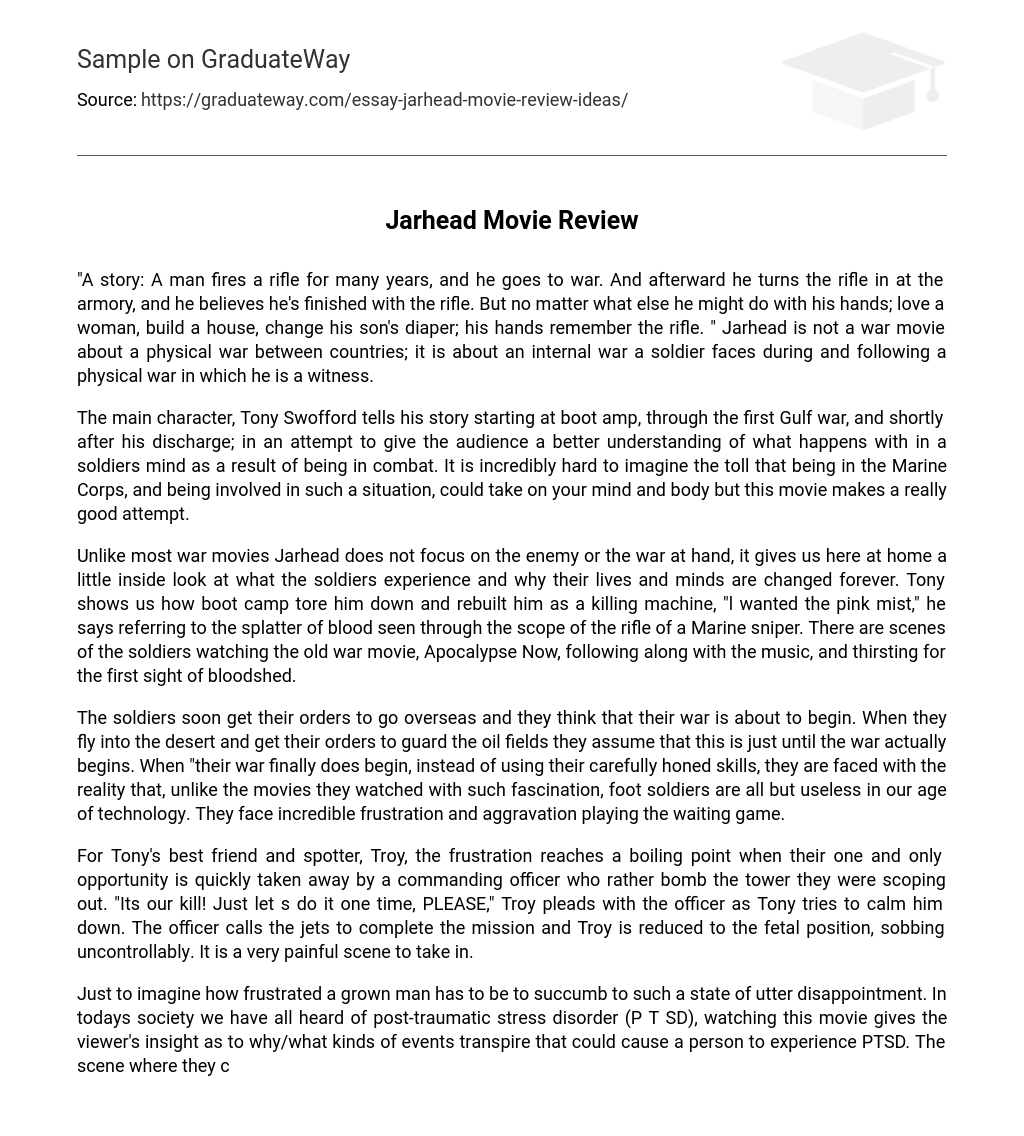“A story: A man fires a rifle for many years, and he goes to war. And afterward he turns the rifle in at the armory, and he believes he’s finished with the rifle. But no matter what else he might do with his hands; love a woman, build a house, change his son’s diaper; his hands remember the rifle. ” Jarhead is not a war movie about a physical war between countries; it is about an internal war a soldier faces during and following a physical war in which he is a witness.
The main character, Tony Swofford tells his story starting at boot amp, through the first Gulf war, and shortly after his discharge; in an attempt to give the audience a better understanding of what happens with in a soldiers mind as a result of being in combat. It is incredibly hard to imagine the toll that being in the Marine Corps, and being involved in such a situation, could take on your mind and body but this movie makes a really good attempt.
Unlike most war movies Jarhead does not focus on the enemy or the war at hand, it gives us here at home a little inside look at what the soldiers experience and why their lives and minds are changed forever. Tony shows us how boot camp tore him down and rebuilt him as a killing machine, “l wanted the pink mist,” he says referring to the splatter of blood seen through the scope of the rifle of a Marine sniper. There are scenes of the soldiers watching the old war movie, Apocalypse Now, following along with the music, and thirsting for the first sight of bloodshed.
The soldiers soon get their orders to go overseas and they think that their war is about to begin. When they fly into the desert and get their orders to guard the oil fields they assume that this is just until the war actually begins. When “their war finally does begin, instead of using their carefully honed skills, they are faced with the reality that, unlike the movies they watched with such fascination, foot soldiers are all but useless in our age of technology. They face incredible frustration and aggravation playing the waiting game.
For Tony’s best friend and spotter, Troy, the frustration reaches a boiling point when their one and only opportunity is quickly taken away by a commanding officer who rather bomb the tower they were scoping out. “Its our kill! Just let s do it one time, PLEASE,” Troy pleads with the officer as Tony tries to calm him down. The officer calls the jets to complete the mission and Troy is reduced to the fetal position, sobbing uncontrollably. It is a very painful scene to take in.
Just to imagine how frustrated a grown man has to be to succumb to such a state of utter disappointment. In todays society we have all heard of post-traumatic stress disorder (P T SD), watching this movie gives the viewer’s insight as to why/what kinds of events transpire that could cause a person to experience PTSD. The scene where they come across a traffic jam that was turned to ash is very surreal, how will those soldiers feel when they see or are in a traffic jam once they return home?
The final scene shows Tony looking out the window in his apartment back home, seeing nothing but desert, and he quotes, “And all the Jarheads; killing and dying; will always be me. We are still in the desert. ” The director hammers home the basis that Marines are Marines forever, especially in their own minds. Once they witness war they are forever changed, their life is never the same.





